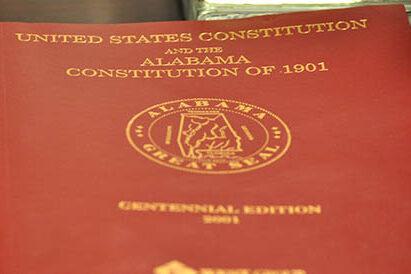MONTGOMERY — At least two bills have been drafted or filed by state legislators this week in response to an Alabama Supreme Court ruling that an embryo created through in-vitro fertilization (IVF) is a child protected by Alabama's wrongful death act and the Alabama Constitution.
In a case originating from Mobile, LePage v. Mobile Infirmary Clinic, Inc., the Supreme Court held in a 7-2 decision that parents of frozen embryos killed at an IVF clinic when an intruder tampered with an IVF freezer may proceed with a wrongful death lawsuit against the clinic for alleged negligence.
The Court also held that the Alabama Constitution's Sanctity of Life Amendment, ratified by Alabama voters and made law in 2018, would require the Court to interpret the law in favor of protecting the unborn. Alabama's Sanctity of Life Amendment declares in the state Constitution that it is "the public policy of this state to recognize and support the sanctity of unborn life and the rights of unborn children, including the right to life."
In response to the decision, House Minority Leader Anthony Daniels (D-Huntsville) filed a bill on Thursday that states any "fertilized human egg or human embryo that exists outside of a human uterus is not considered an unborn child or human being for any purpose under state law."
"It makes clear that until a fertilized embryo is inside a uterus, it's not a child. Through HB31, I seek to provide women access to the reproductive health care they need and deserve," Daniels said in an email to supporters of his Congressional campaign on Friday.
According to Alabama Daily News, State Sen. Tim Melson (R-Florence) has drafted legislation that says "any human egg that is fertilized in vitro shall be considered a potential life but shall not be considered for any purposes a human life, a human being, a person, or an unborn life unless and until the fertilized egg is implanted into a woman's uterus and a viable pregnancy can be medically detected."
"The entire in vitro fertilization model of health care is at risk," Melson, a medical doctor, told the outlet on Thursday. "Everything from the cost of insurance to flat out giving it up because it's not worth it anymore."
Eric Johnston, president of the Alabama Pro-Life Coalition and author of Alabama's 2019 abortion ban law, told 1819 News on Friday the two legislative proposals so far were "very ill-informed efforts."
"Most significantly, they are proposed "statutes." They cannot modify the AL Constitution as interpreted by the court. It will require a CA (constitutional amendment)," Johnston said in an email.
A bill can be passed quickly with majorities in both chambers and the Governor's signature. A constitutional amendment would take more time since it requires 60% approval in both chambers and approval by Alabama voters on the ballot.
Gov. Kay Ivey said in a statement on Friday she was closely following the IVF issue.
"Following the ruling from the Alabama Supreme Court, I said that in our state, we work to foster a culture of life. This certainly includes some couples hoping and praying to be parents who utilize IVF. Republican colleague in the Legislature Senator Tim Melson, along with Senate and House members, are working on a solution to ensure we protect these families and life itself. I look forward to continue closely following this issue," Ivey said.
House Speaker Nathaniel Ledbetter (R-Rainsville) said in a statement, "The Legislature will soon consider a solution that preserves our Alabama values by empowering IVF clinics to continue assisting couples in bringing new life into the world."
"Alabamians strongly believe in protecting the rights of the unborn, but the result of the State Supreme Court ruling denies many couples the opportunity to conceive, which is a direct contradiction," Ledbetter said.
To connect with the author of this story or to comment, email caleb.taylor@1819News.com.
Don't miss out! Subscribe to our newsletter and get our top stories every weekday morning.










